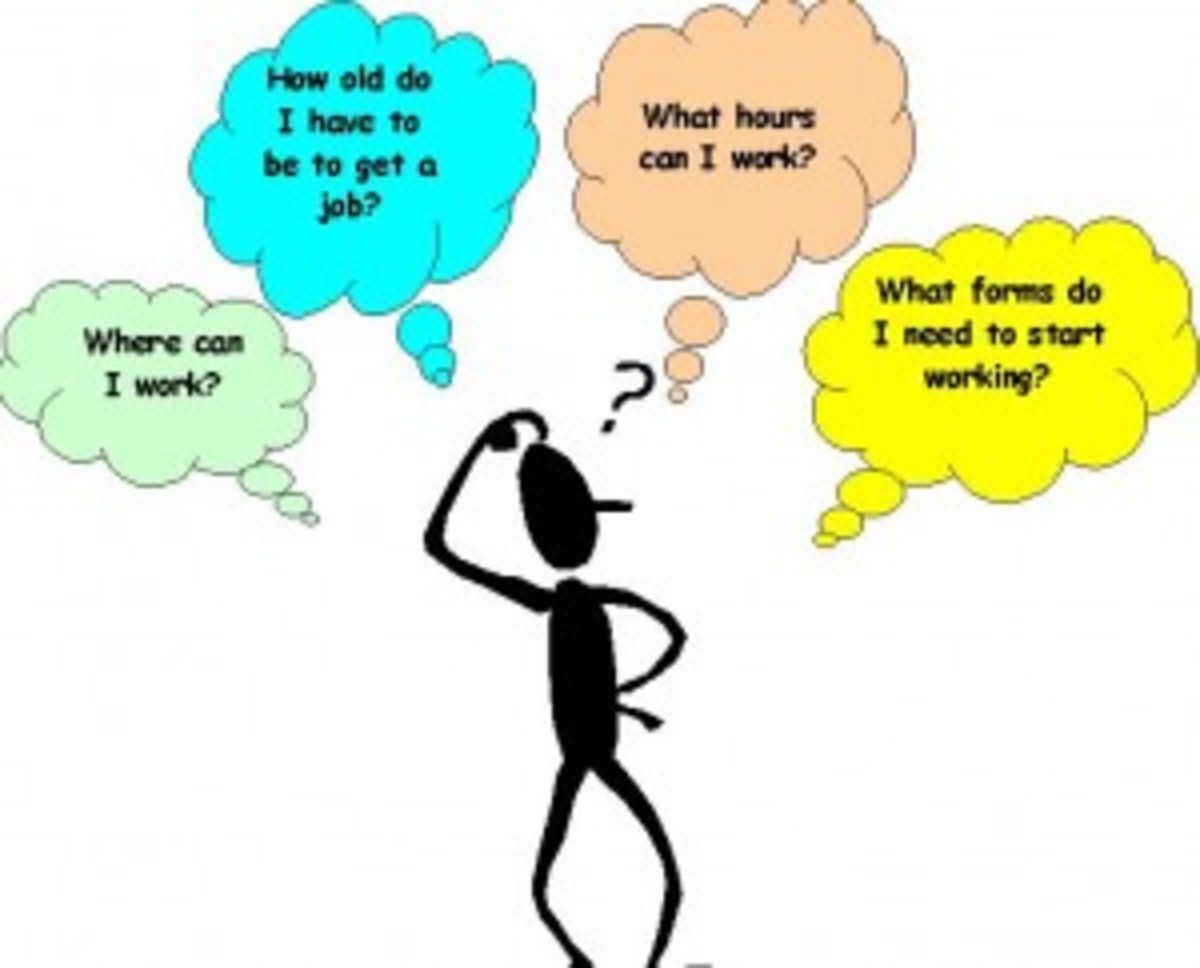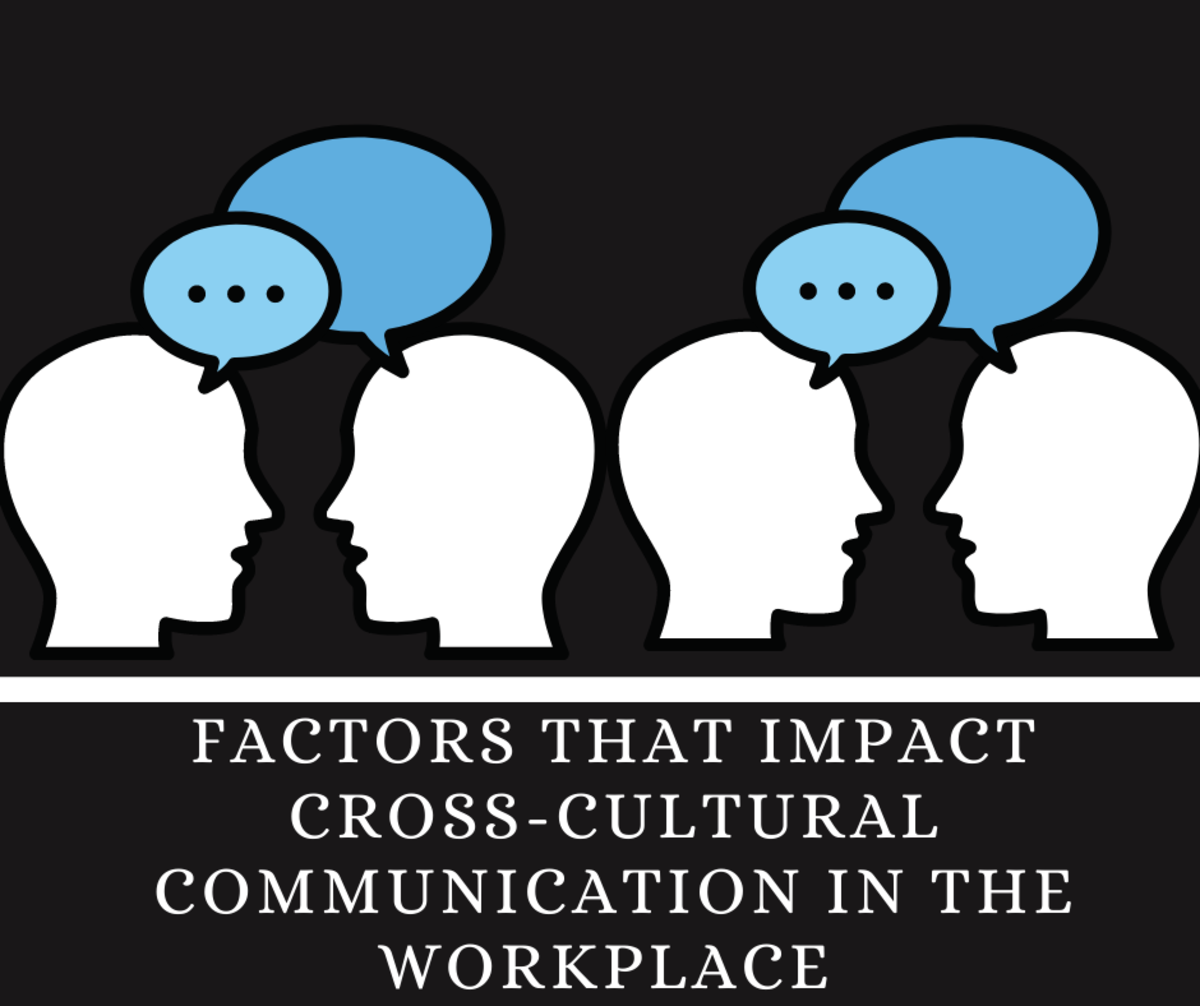Nate's Workplace Survival Guide: 90 Days Guaranteed Or You're Gone
Let the Countdown Start
The ninety day trial period is a time wrought with dread. At least if you're actually concerned with keeping your job. For others it's a “seasonal” position. (We'll go over this and other ways to pad your application and resume without going overboard in a later article) But lets assume for the moment that you want the job to last a while. How you perform in the first ninety days is crucial.
Training Day
Depending on where you work your first day may consist mostly of training. These days most training programs are done using a computer presentation that you are later tested on. Other places hand you an Associate Atlas, or some other training manual. At one job my training period consisted of my boss telling me word for word what to do and not to do. Either way the best advice I can give here is to pay attention and follow the training to the letter, even when you see other coworkers cutting corners or doing things that directly contradict what you've been told.
Other training materials include videos or DVD's telling you how to sell things or operating equipment. In the case of videos the information presented may be out dated, so if you're unsure about something ask questions.
After the training videos and the hours long computer presentation that has taken time from your life that you will never get back, you will be baptized in fire. That means going into the actual workplace and showing what you're made of.
If you're working in retail then part of your training may consist of learning to use the cash register. Every store does it differently. Every company uses different technology and different procedures involved in the process of managing financial transactions. In Brooks Pharmacy, later bought out by Rite Aid, I was required to count out the cash in my drawer at the beginning and end of each day. At TJ Maxx and K-mart I only needed to put my cash and slips in a sealed bag and put the change in separate zip lock bags.
Whatever the procedure, when dealing with money always be very meticulous and careful. Make sure bills and coins are placed in the right tills. You are responsible for every penny that goes in and comes out of your drawer and losing large amounts of it at the end of the day will not look good for you. Any loose change that a customer leaves behind should either be placed in the drawer or in the leave-a-penny jar. Don't ever pocket change while you're on the clock and keep your own money in your wallet or pants pocket. If your drawer is password protected, make sure you lock it to prevent other cashiers from using it so that you are not made responsible for other people's mistakes.
Again, a lot of these things seem like they fit in the “no duh” category. But you'd be surprised how many people never read that list until after the fact.
Another item that goes on the no duh list is to ask questions. Whenever you don't understand something or a situation arises that you're not familiar with, it's better to ask than to assume. Asking a question can be the difference between making your boss see that you're serious about being there and accidentally pulling the plug on someone's life support machines so you can vacuum a patient's room.
Initiative, Honesty and Other Things we do to Pay the Rent
Training Day is over. You've got the basics down, though you're still a little shaky, which is okay. Are you in the clear yet? Not by a long shot. Remember, this is your 90 day trial period. You can be terminated right here and now without warning.
So, now that there's no pressure, what other things can you do to make these ninety days go by smoother and ensure that you have the job? Believe it or not, there's a looooong list. But I'm only going to go over about a handful of them. Go with these tips and see if you can come up with some ideas of your own. If you send me your ideas I'll take credit for them!
2: Work Every Second of your Shift Like you have Nothing Else to Live for
You'll be given a schedule. Depending on the time you've requested you could be given a handful of five hour shifts or you could be given full eight hour shifts.
Make all of your plans around this schedule. The first 90 days of a job is a lot like being married or dating. You need to make your boss feel like the job is the only thing in your life when you're there and don't even think about your other relationships until you're no longer on the clock. (Although I wouldn't refer to time with your girlfriend/boyfriend as being “on the clock”)
Nothing short of your own death or the verifiable death if your immediate family members should force you to call in on any day close to your first. Any plans you made before you started your job should pretty much be canceled unless you can somehow sneak them into your work schedule.
The bottom line is when you're at work, you're at work. Shut the cellphone off and focus on the job.
However, the only time your boss or job should have no effect on you is during your off time. If you are asked to stay extra hours or to come in on a day off, you are well within your rights to politely refuse. As a rule, if you do agree to come in on said day off or work those extra hours, remember, it was your choice, so don't piss and moan about it.
1: Treat Every Day Like It's a Busy Day
While waiting for my steakhouse burger at Burger King, I was lucky enough to witness this exchange between a new cashier who had just started and the manager on duty.
“It must get pretty bored here on slow days,” the cashier remarked.
“It's never a slow day when I'm on,” The manager replied with a grin.
With just those two comments you can gather a world of wisdom about any work place whether it's retail, food service, or running a corporation.
Make this your mantra: There Are No Slow Days. Every Day is a Busy Day.
You're not volunteering to be at work. You're being paid to be there. So it stands to reason that you are expected to do very work-like things, which do not include slumping over the cash register and doodling, reading magazines behind the photo machine where no one can see you, or taking unnecessary bathroom breaks.
When it seems like things have slowed down or you're done with a task you've been given, find your supervisor, manager, or whomever is in charge and ask them what else needs to be done. The more you get done during the slow periods, the less you have to do when things pick up.
3: Communicate with everyone
It's not much of a workplace if you're afraid to talk toanyone above you. And if you're in a work environment where you are made to feel intimidated then you don't need to be there. A place like that won't last long to begin with and it will take you down with it.
The thing is, if you don't communicate your needs to others then how are they going to know how to deal with you? More the point how can you get the most of the job if you're struggling to catch up with everyone?
If you suffer from chronic fatigue syndrome or anxiety disorders tell your boss up front so he doesn't expect you to operate heavy machinery. If you go to church every Sunday let the person who does the schedule know so it doesn't seem like you're just trying to get out of work. If you have bladder and bowel problems, make sure they know that too.
It can be hard to know just what to tell everyone up front. Apart from obvious handicaps, if you have a disability like ADHD, Bipolar disorder, or if you're diagnosed with something like Asperger's Syndrome you may want to keep it under your hat, unless you feel like it's going to affect the work place. I was diagnosed with Asperger's at fourteen and I never bring it up except in casual conversation, but other people with the same diagnosis need job coaches to get them through the day.
Or if a particular coworker is making you uncomfortable in anyway, tell your boss so something can be done about it. The downside of that, of course, is that if no one else complains about it then eventually you become the guy who just complains about everyone. And of course there's the chance that your boss will be the parent, best friend, or significant other of said person who makes you uncomfortable, but we'll get to that in a later article.
Sure, there are sacrifices you have to make. If you're working in any aspect of customer service then you'll have to deal with customers at some point in the day whether you're good with people or not. And there may be parts of the job you don't appreciate like having to clean the bathroom, or sweeping a parking lot full of crap every morning. But these are aspects of the job. If you're not physically incapable of doing them you will be expected to perform without complaint.
Oh, in closing, I am going to give you one sentence that you should never, ever, ever utter during your ninety days. It is a sentence that will earn disdain and hatred from your coworkers and supervisors and more than guarantee you will be terminated before the 90 days is over. That sentence is:
“That is not what I am being paid for.”









